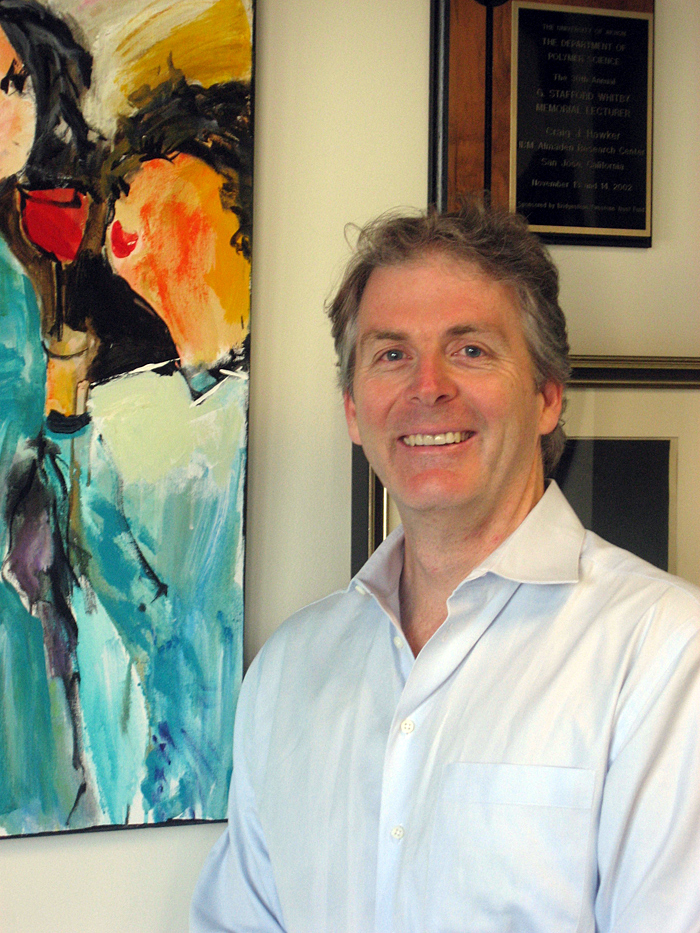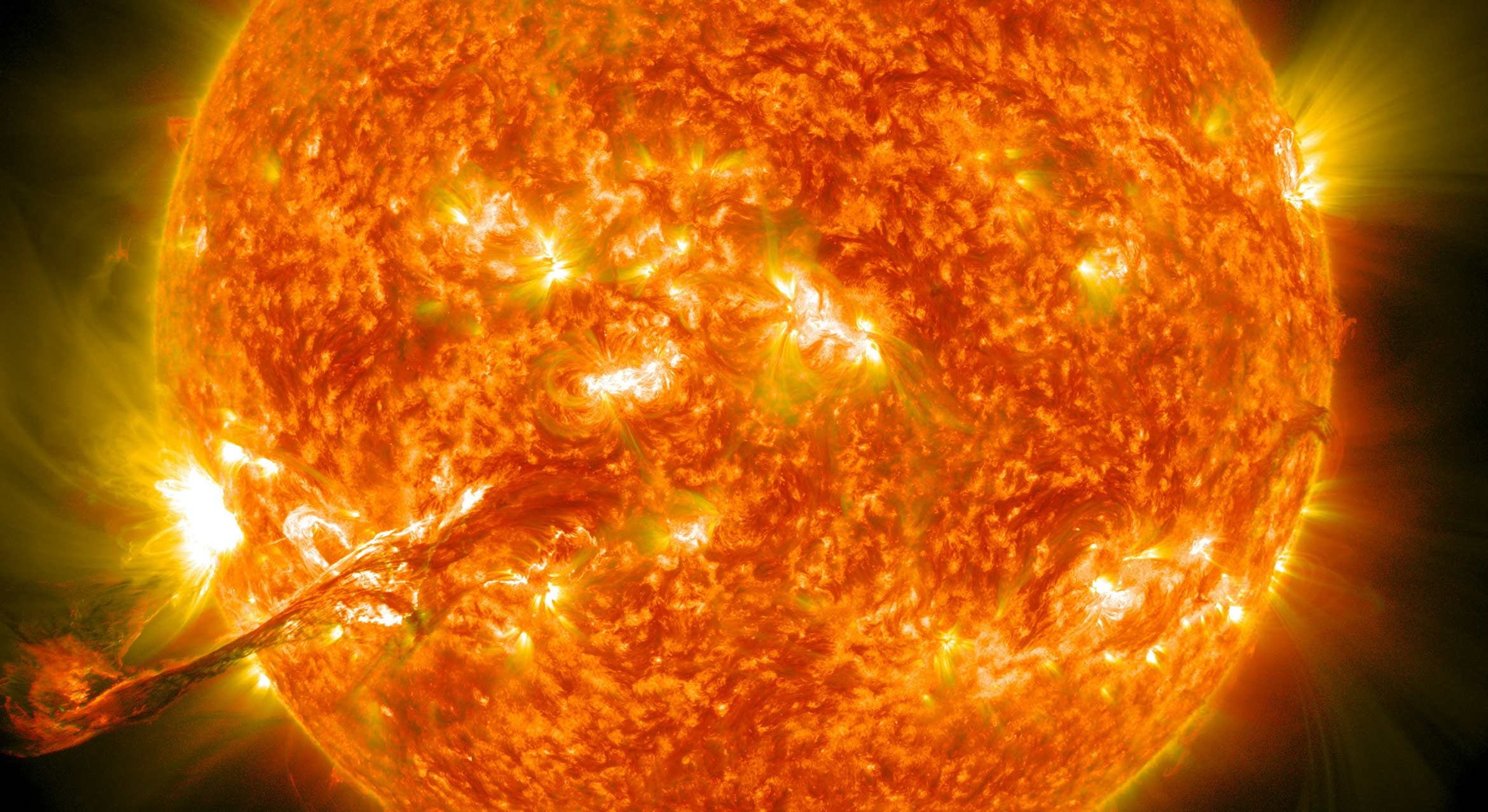
Craig Hawker Named AAAS Fellow
Craig Hawker, a UC Santa Barbara professor of materials, has been named a fellow of the American Association for the Advancement of Science (AAAS). He is one of 43 new members elected to the organization’s Chemistry section, and is recognized “for revolutionizing materials research through the development of powerful synthetic methods and strategies for molecularly engineering functional macromolecules, inspiring scientists across multiple disciplines.”
“I’m thrilled to receive this great honor from AAAS,” said Hawker, the sole AAAS fellow from UC Santa Barbara this year. “This honor belongs to all the wonderful students and researchers who have made the work that is recognized by the academy possible. I am also extremely fortunate to be continually inspired by my very talented colleagues and to have such a supportive, multi-disciplinary environment at UCSB.”
Hawker is the director of UCSB’s California Nanosystems Institute (CNSI), Dow Materials Institute and co-director of the Materials Research Lab. He holds the Alan and Ruth Heeger Chair in Interdisciplinary Science and is the Clarke Professor within CNSI, and is a member of the materials department and the Department of Chemistry and Biochemistry at UCSB.
His research includes the design and synthesis of macromolecular structures and polymeric thin films, and the controlled assembly of nanoparticles — studies that lend themselves to applications in a wide variety of fields, from energy and data storage to improved semiconductor technology to advanced biotechnology.
“Craig Hawker is an extremely gifted materials scientist and engineer, and I am very pleased that his discoveries at the interface of many disciplines have been recognized by the AAAS,” said Pierre Wiltzius, UCSB’s Susan and Bruce Worster Dean of Science. “He is so deserving of this honor, as his research has far-reaching implications across multiple fields. He is truly the archetypal collaborative researcher that UCSB is known for.”
A native of Queensland, Australia, Hawker began his professional career in 1990 as a Queen Elizabeth II Research Fellow at the University of Queensland before being hired by IBM in 1993 to work in the Almaden Research Center in San Jose, California. In 2001, he became an honorary professor of chemistry at the University of Queensland.
During his career, Hawker has been the recipient of numerous honors and awards, including election to Britain’s Royal Society in 2010, the Centenary Prize from the Royal Society of Chemistry in 2013, and the American Chemical Society’s national award in 2012. Hawker also has been named a Highly Cited Researcher in 2015 by the mass media company Thomson Reuters.
Hawker received his undergraduate degree in chemistry from the University of Queensland in 1984, and went on to study the biosynthesis of Vitamin B12 at the University of Cambridge in the United Kingdom. He then did postdoctoral work at Cornell University, where he finished in 1990.
Hawker also serves on various editorial boards for several professional publications, including the Angewandte Chemie International Edition, ACS Combinatorial Science, the International Journal of Polymeric Materials and the Australian Journal of Chemistry. He also serves in advising and consulting capacities for various organizations, including the Mitsubishi Chemical Company, the Molecular Foundry at the Lawrence Berkeley National Laboratory and MIT’s Institute for Soldier Nanotechnologies.
This year 347 members have been awarded this honor by AAAS because of their scientifically or socially distinguished efforts to advance science or its applications. New Fellows will be presented with an official certificate and a gold and blue (representing science and engineering, respectively) rosette pin on Saturday, February 13, during the 2016 AAAS Annual Meeting in Washington, D.C.
The tradition of AAAS fellows dates back to 1874. The nonprofit organization includes 254 affiliated societies and academies of science, serving 10 million individuals. Its journal Science has the largest paid circulation of any peer-reviewed general science publication in the world, with an estimated total readership of 1 million. AAAS fulfills its mission to “advance science and serve society” through initiatives in science policy, international programs and science education, among others.



